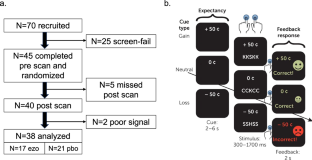2025-05-20 カリフォルニア大学リバーサイド校(UCR)
<関連情報>
- https://news.ucr.edu/articles/2025/05/20/pandemic-misinformation-rivco-meetings-studied
- https://www.sciencedirect.com/science/article/pii/S2211335525001378
2020~2022年のCOVID-19パンデミック時の米国カリフォルニア州3郡における政策関係者の視点とデータ、研究エビデンス、誤情報の活用 Policy stakeholders’ perspectives and use of data, research evidence, and misinformation in three counties in California, USA during the COVID-19 pandemic, 2020–2022
Joshua Murillo, Tessa R. Pulido, Aerika Brittian Loyd, Andrew M. Subica, Irene H. Yen, Denise D. Payán
Preventive Medicine Reports Available online: 3 May 2025
DOI:https://doi.org/10.1016/j.pmedr.2025.103098
Highlights
- Misinformation was referenced by policy stakeholders across the three counties.
- Residents accused government agencies of spreading COVID-19 misinformation.
- Stakeholders expressed uncertainty about data presented and mitigation strategies.
- Local health agencies should increase their credibility as health information sources.
Abstract
Objective
This study investigates how local policy stakeholders viewed and used research evidence, data, and (mis)information in county policy discussions during the COVID-19 pandemic.
Method
We employed document and exploratory content analysis methods to examine Board of Supervisor materials (N = 534 policy documents) from general and special/emergency meetings (March 2020 – December 2022). We purposefully selected three jurisdictions from California, USA with varying socio-demographic, political, and health care characteristics as case studies.
Results
Many residents who commented during local policy discussions contested the: 1) validity of health data provided (i.e., mortality rates), and 2) efficacy of proposed preventive measures like mask wearing and vaccine receipt. While government officials and healthcare personnel referenced research evidence and data as justification for these measures, several stakeholders expressed skepticism about the information presented in all three counties. Perceptions of misinformation included statements by residents that questioned the COVID-19 information provided by government officials or reflected a belief that federal and state government agencies (e.g., Centers for Disease Control and Prevention, CDC) were sources of misinformation. An emergent finding was that many residents voiced uncertainty and requested more information about local pandemic conditions and policy mitigation strategies.
Conclusions
Results reveal a distrust of public health and government officials and data/information shared in local policymaking debates during the COVID-19 pandemic. Local health departments may benefit from investing in efforts to increase their credibility as trusted sources of health information among community members. Local government agencies should develop transparent health promotion campaigns to identify and dispel misinformation.


